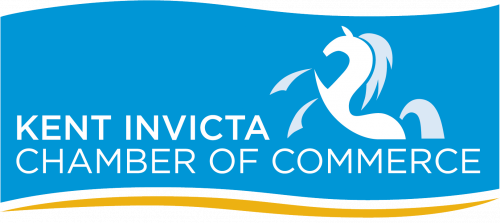Empowerment Unleashed: Breaking Free From Micromanagement
In the field of leadership, there’s one principle that stands out as the backbone of every successful leader; respect for people. With over 25 years of experience navigating the intricacies of leadership, I’ve come to understand that empowerment is the cornerstone of effective leadership and organisational success. However, the journey to empowerment is not without its hurdles, with micromanagement serving as a formidable obstacle.
Micromanagement, often regarded as the scourge of productivity and morale, casts a pervasive shadow over workplaces, leaving employees feeling stifled, demotivated and disengaged. Shockingly, a survey conducted by Gallup revealed that a staggering 79% of employees who quit their jobs cite a lack of appreciation as the primary reason for their departure. Micromanagement exacerbates this issue, creating an environment where employees feel undervalued and underutilised.
Despite its detrimental effects, many individuals endure micromanagement in silence, fearing the repercussions of being labelled as difficult, obstructive or a troublemaker. In reality, peer-to-peer conversations often reveal that others share similar sentiments. However, the fear of confronting the issue with their superiors often leads employees to endure the situation silently or even resign from their positions.
It’s crucial to recognise that micromanagement not only damages individual morale but also erodes trust within teams and undermines organisational effectiveness. By fostering an environment where open communication and mutual respect are encouraged, leaders can address the root causes of micromanagement and cultivate a culture of empowerment and collaboration.
The detrimental effects of micromanagement extend far beyond individual dissatisfaction. Teams suffer from a significant decline in creativity, collaboration and innovation as individuals become hesitant to take risks or freely express their ideas. Personally, even when in senior roles, I’ve experienced moments in my career where my confidence was so profoundly impacted by micromanagement that I felt anxious about attending meetings where my superiors would be present.
Moreover, micromanagers themselves endure burnout and frustration, overwhelmed by the relentless need to control every aspect of their team’s work. This not only impairs their own well-being but also hampers their ability to effectively lead and inspire their teams.
Micromanagement doesn’t always have a clear-cut explanation, it’s a complex issue with various underlying causes. From my years of experience in leadership, I’ve observed that it often boils down to personal traits, past experiences and the culture within an organisation.
Fear of failure is a common driver. I’ve seen managers who feel the weight of responsibility for every task and project, fearing that any misstep reflects poorly on them. This fear can lead them to hover over their team, scrutinising every detail and decision.
Perfectionism is a trait that hits close to home for me. Over the years, I’ve found myself grappling with exceptionally high standards, often struggling to trust others to meet them. This internal drive for perfection can sometimes lead me to feel compelled to oversee every aspect of a project, ensuring it aligns perfectly with my vision.
Recognising this tendency within myself has been a journey. It’s something I’ve had to work hard on to prevent inadvertently micromanaging my teams. However, this awareness has been incredibly valuable. It’s allowed me to take a step back, reassess my approach, and trust in the capabilities of my team members.
By acknowledging my perfectionist tendencies and actively working to curb them, I’ve been able to foster a more collaborative and empowering environment for my teams. Rather than micromanaging every detail, I’ve learned to delegate effectively, empower my team members and focus on the bigger picture.
This journey hasn’t been easy, but it’s been incredibly rewarding. Embracing imperfection as opportunities and trusting in the skills and expertise of my team has not only alleviated the burden of micromanagement but has also led to greater innovation, creativity and success within my teams.
Lack of trust can also play a significant role. In my career, I’ve witnessed managers who struggle to trust their team members’ abilities or intentions. This lack of trust may stem from past negative experiences or insecurities about their own leadership capabilities.
Personal insecurities can indeed fuel micromanagement tendencies, creating a toxic dynamic within a team. I’ve personally experienced this first hand, finding myself perceived as a threat by my manager rather than valued as an asset. At the time, I internalised this perception, second-guessing every decision and scrutinising every word I typed in a paper in an effort to align with my manager’s vision. In hindsight, I’ve come to realise that this dynamic was driven not by my own insecurities, but by my manager’s. Their fear of being overshadowed or outshined led them to micromanage as a way to assert control and maintain their sense of authority. It’s a realisation that didn’t come easily at the time, as I grappled with self-doubt and uncertainty about my own capabilities.
Understanding this dynamic has been a transformative journey. It’s allowed me to release myself from the burden of self-blame and recognise that my performance was never the issue, it was my manager’s insecurities that drove their behaviour. Armed with this insight, I’ve been able to navigate similar situations with greater clarity and confidence, refusing to let others’ insecurities dictate my worth or potential.
Lastly, organisational culture can play a significant role in perpetuating micromanagement. In environments where control and hierarchy reign supreme, and autonomy and collaboration take a back seat, managers may feel compelled to micromanage to meet expectations or adhere to established norms. This tendency is often particularly prevalent in matrix organisations or those with a long-standing history that have been slow to embrace transformation and modernisation. In such cultures, the emphasis on control can stifle innovation, creativity and individual empowerment. Managers may feel pressure to exert control over their teams’ every move, fearing the consequences of deviating from established protocols or challenging the status quo.
Breaking free from this ingrained culture of micromanagement requires a concerted effort to shift organisational values and priorities. It involves fostering a culture that values autonomy, collaboration and trust, and empowers individuals at all levels to take ownership of their work and contribute meaningfully to the organisation’s goals.
This transformation is unlikely to happen overnight, but by challenging outdated norms and championing a more empowering and inclusive culture, organisations can create environments where micromanagement is no longer the default mode of operation.
Addressing micromanagement requires a nuanced approach that acknowledges these underlying causes. By embracing a culture of trust, empowerment and open communication, organisations can create environments where micromanagement is less prevalent, and individuals and teams are free to thrive.
In essence, the toxic cycle of micromanagement not only stifles individual growth and team dynamics but also undermines the overall success and sustainability of the organisation. Recognising and addressing these harmful tendencies is essential for fostering a culture of trust, autonomy and mutual respect within the modern workplace.
To liberate ourselves from the constraints of micromanagement and embrace empowerment, we must navigate this delicate balance with finesse. As recipients, open communication with our managers is paramount. Expressing our desire for autonomy and trust in a constructive manner lays the groundwork for fostering a more empowering relationship. Setting clear boundaries and demonstrating our competence serve as tangible demonstrations of our readiness to take on greater responsibilities.
However, it’s essential to approach these conversations with a positive framing. Negative framing risks exacerbating the issue, potentially alienating us from our goal of fostering a more empowering work environment. Instead, focusing on the benefits of empowerment and the collective success it can bring serves as a catalyst for unlocking the shackles of micromanagement. By highlighting the opportunities for growth, collaboration and innovation that empowerment affords, we can inspire our managers to embrace a new paradigm of leadership, one rooted in trust, autonomy and mutual respect.
Now, let’s delve into the advantages of empowerment. Empowered teams are more resilient, adaptable and innovative, capable of navigating challenges and seizing opportunities with confidence. Research by McKinsey & Company reveals that organisations with empowered employees outperform their competitors by 202%.
Empowerment fosters a culture of accountability and ownership, where individuals take pride in their work and actively contribute to the organisation’s success. Furthermore, it nurtures leadership growth at all levels, empowering individuals to lead by example and inspire others to excel.
My conclusion, empowerment is not just a buzzword, it’s a fundamental principle that drives organisational excellence and employee satisfaction. By transcending the constraints of micromanagement and embracing empowerment, leaders can unlock the full potential of their teams and achieve lasting success.
To learn more about how I can support you on this journey and more, visit www.eversolean.com or email me matt@eversolean.com. Let’s connect and explore how we can work together to create a brighter future for your organisation.


